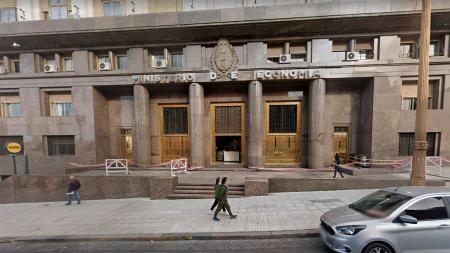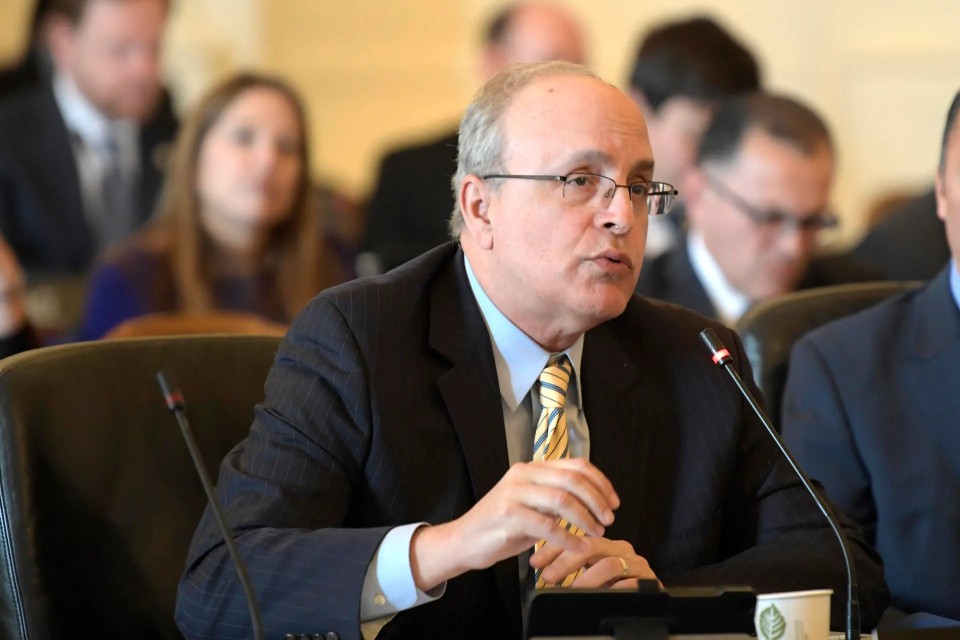The announcement by the Minister of Economy, Sergio Massaof debt repurchases pursues several objectives that can strengthen each other: take advantage of the relatively low prices of bonds, help lower country risk and raise the local debt market, and generate additional intervention in the exchange market, through indirect operations that generate the price of financial dollars.
This was indicated by economists and market specialists, who also saw that, beyond the debt repurchase, they see in the new measure of the Palacio de Hacienda an opportunity to intervene in the exchange market and have greater firepower in the type of change to reduce the exchange rate gap without going against the recommendations of the International Monetary Fund (IMF).
“The measure seems positive to me, since in this way they are buying debt at a third of its value,” said the economist Fausto Spotornoto Télam, who opined that the eventual ends of containing financial dollars “are very short-term”
Massa’s announcement
Specifically, Massa announced the repurchase of external debt for US$ 1,000 million as a result of the “window of opportunity” represented by the fall in country risk, a measure that during the day made Argentine bonds jump up to 11%
The head of the Treasury portfolio indicated that this measure aims to “improve the debt profile and continue lowering the country risk, with a first step highly focused on global (bonds), especially those of short maturity, including those that They expire in 2029 and 2030.”
According to, Gabriel Caamanofrom Consultora Ledesma, 2023 is an “election year and they are trying to put together a mechanism that the IMF can accept that will give them the ability to intervene in the price of bonds and contain exchange rate gaps,” added the economist.
The reading of Darius Epstein It is that, in this way, “Massa increases the power of fire to intervene the MEP dollar (Stock Market) and the CCL dollar (Cash with liquidation), through the purchase of bonds”, since “from the BCRA they were limited by the IMF”, He expressed through his Twitter account.
This operation would cause “alternative dollars to fall and the gap would narrow,” he added.
Similarly, Bullmarketbrokers analyst, Mauro Mazzatold Télam that now the Central Bank “is going to make interventions transparent” in the exchange market -from the point of view that third-party allies such as Anses should not be used-, and to the extent desired to achieve an impact on the exchange market .
Regarding the impact of the debt repurchase itself, he minimized the effect of the fact that in the short term “there is still no access to the market”-
Parallel to Massa’s announcement, The Central Bank increased very short-term interest rates with banks by 200 basis points.
This measure, by raising rates in pesos, also helps to contain parallel exchange rates, since it is a reference rate that impacts the rate of guarantees, among other operations.
The impact on the exchange market was recognized by Massa’s own team, since they indicated ” “in addition to the convenience of buying short bonds with Treasury’s own resources, as expectations improve we will see a better price in the CCL dollar and MEP, which would narrow the gap with the official one,” a member of the economic team told Télam.
The same spokespersons clarified that These US$ 1,000 million do not come from liquid reserves but from the resources of the National Treasury, which, although they are reflected in the balance of the Central Bank, do not form part of the net reserves, a value that the IMF closely monitors to comply with the goals the current agreement with the agency.
As regards eventual approval by the IMF, it was clarified that “no type of agreement is necessary” with that multilateral organization.
















